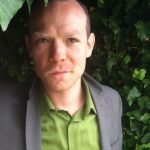Diabetes Reclassified
Node Smith, ND
A report from the Lancet Diabetes and Endocrinology has developed a new classification system of diabetes into 5 categories.1 The current categorization of diabetes in into 3 categories: types 1 and 2 and gestational diabetes. Type 1 is an autoimmune condition usually presenting earlier in life and resulting in destruction of the cells of the pancreas that manufacture and secrete insulin. Type 2 is the most common, and associated with functional dysfunction of insulin supply and utilization. And gestational diabetes is associated with pregnancy.
The new classification system doesn’t seem to have a place for diabetes in pregnancy.
The new proposed classification system is:
- “Cluster 1”: Severe autoimmune diabetes (SAID)
- “Cluster 2”: Severe insulin-deficient diabetes (SIDD)
- “Cluster 3”: Severe insulin-resistant diabetes (SIRD)
- “Cluster 4”: Mild obesity-related diabetes (MOD)
- “Cluster 5”: Mild age-related diabetes (MARD)
The study looked at nearly 9,000 newly diagnosed diabetic patients in Sweden. The study only included adult onset diabetes – inherently opening up the question of additional categories. The reclassification is meant to better identify patients who may be at higher risk for complications through a better understanding of individual diabetes mechanisms. There were 5 primary factors taken into consideration: age at diagnosis, BMI, hemoglobin A1c, glutamate decarboxylase antibodies (GADA) and homeostasis model assessment 2 (HOMA2) – measurement of beta-cell function and insulin resistance.
Severe autoimmune diabetes (SAID)
This was the least common type, with only 6.4 percent affected. This would be type 1 in the current classification system. Disease onset was early in life and was GADA positive. This category was marked by a low BMI, poor metabolic control and insulin deficiency. Injectable insulin is used in therapy.
Severe insulin-deficient diabetes (SIDD)
This category displayed insulin deficiency and were GADA negative. These patients were clinically very similar to category 1, however, responded to Metformin treatment and had lower insulin usage. This category was seen to be at greatest risk for retinal damage from disease complications.
Severe insulin-resistant diabetes (SIRD)
This category made up 15.3 percent of participants. Disease was marked by a high HOMA2-IR index as well as insulin resistance. These patients were more likely to be overweight or obese. This group showed more kidney damage than other groups, as well as an increase likelihood to develop nonalcoholic fatty liver disease.
Mild obesity-related diabetes (MOD)
This was an interesting category, in that they displayed high BMIs however did not show insulin resistance.
Cluster 5: Mild age-related diabetes (MARD)
Nearly 40 percent of the study participants fell into this category. The metabolic profiles of these patients were not as dysfunctional as other categories.
Source:
 Node Smith, ND, is a naturopathic physician in Portland, OR and associate editor for NDNR. He has been instrumental in maintaining a firm connection to the philosophy and heritage of naturopathic medicine among the next generation of docs. He helped found the first multi-generational experiential retreat, which brings elders, alumni, and students together for a weekend camp-out where naturopathic medicine and medical philosophy are experienced in nature. Four years ago he helped found the non-profit, Association for Naturopathic ReVitalization (ANR), for which he serves as the board chairman. ANR has a mission to inspire health practitioners to embody the naturopathic principles through experiential education. Node also has a firm belief that the next era of naturopathic medicine will see a resurgence of in-patient facilities which use fasting, earthing, hydrotherapy and homeopathy to bring people back from chronic diseases of modern living; he is involved in numerous conversations and projects to bring about this vision
Node Smith, ND, is a naturopathic physician in Portland, OR and associate editor for NDNR. He has been instrumental in maintaining a firm connection to the philosophy and heritage of naturopathic medicine among the next generation of docs. He helped found the first multi-generational experiential retreat, which brings elders, alumni, and students together for a weekend camp-out where naturopathic medicine and medical philosophy are experienced in nature. Four years ago he helped found the non-profit, Association for Naturopathic ReVitalization (ANR), for which he serves as the board chairman. ANR has a mission to inspire health practitioners to embody the naturopathic principles through experiential education. Node also has a firm belief that the next era of naturopathic medicine will see a resurgence of in-patient facilities which use fasting, earthing, hydrotherapy and homeopathy to bring people back from chronic diseases of modern living; he is involved in numerous conversations and projects to bring about this vision










